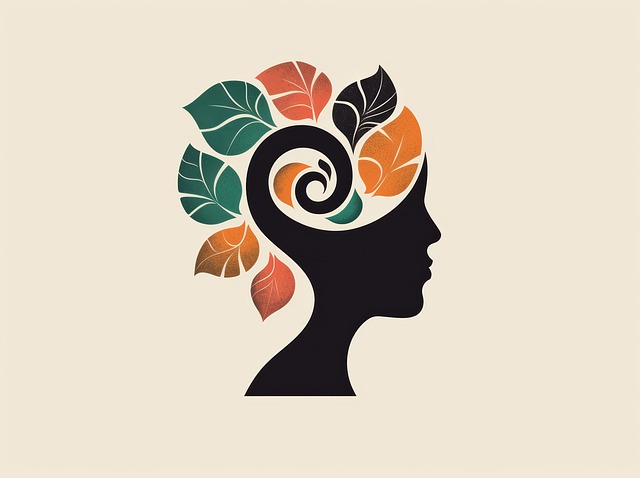Stress management workshops, such as Denver's Exposure and Response Prevention Therapy (EPRT), offer effective tools for navigating today's high-pressure world. These structured sessions empower individuals to identify triggers, develop healthy coping strategies, and understand the mind-body connection, contributing to Mental Illness Stigma Reduction while enhancing mental health outcomes. EPRT specifically provides resilience-building strategies and challenges unhelpful thought patterns through tailored exercises, scenario mimicry, and guided exposure, reducing anxiety and improving wellness. Facilitators use engaging techniques, create safe spaces, adapt content for cultural competency, and leverage public awareness to normalize stress management. Success is measured through participant satisfaction, stress level reductions, and improvements in mental health metrics, with long-term outcomes tracked through follow-up surveys and post-workshop support programs.
Stress management workshops are essential tools for fostering mental well-being in today’s fast-paced world. This article delves into the art of organizing effective programs, focusing on Denver Exposure and Response Prevention (E-ERP) Therapy as a powerful approach. We explore strategies for designing engaging sessions, facilitating impactful learning, and measuring success. From best practices to post-workshop support, this guide provides insights to revolutionize stress management, empowering individuals to navigate life’s challenges with resilience.
- Understanding Stress Management: The Need for Workshops
- Designing Effective Denver Exposure and Response Prevention Therapy (E-ERP) Sessions
- Facilitation Techniques and Best Practices
- Measuring Success and Post-Workshop Support Strategies
Understanding Stress Management: The Need for Workshops

Stress management is a crucial aspect of overall well-being, yet many individuals struggle to recognize and address their stress levels effectively. In today’s fast-paced world, where demands are high and pressures are vast, learning to manage stress becomes essential for maintaining mental health. This is where workshops play a pivotal role in empowering people with practical tools and techniques.
Workshops, such as those focusing on Denver Exposure and Response Prevention Therapy (EPRT), offer structured environments for individuals to explore their stress triggers and develop healthy coping mechanisms. By participating in these sessions, one can gain insights into the mind-body connection, learn effective strategies for resilience building, and challenge unhelpful thought patterns. Moreover, workshops contribute to Mental Illness Stigma Reduction Efforts by fostering a supportive community where participants share experiences and support each other. Incorporating self-care practices into these workshops further enhances individuals’ ability to manage stress, ultimately leading to improved mental health outcomes.
Designing Effective Denver Exposure and Response Prevention Therapy (E-ERP) Sessions

Designing effective Denver Exposure and Response Prevention (E-ERP) therapy sessions involves a meticulous approach to help individuals confront and manage their fears. These sessions are tailored to induce self-awareness exercises, enabling participants to understand their triggers and responses. By gradually exposing them to anxiety-inducing scenarios, the workshops foster mental health awareness and promote healthier coping mechanisms.
The process begins with identifying specific phobias or anxieties. Mental wellness professionals then craft scenarios that mimic real-life situations, allowing participants to face their fears in a controlled environment. Through guided exposure, individuals learn to recognize their physical reactions and practice response prevention techniques. This involves reframing impulsive responses and adopting more adaptive behaviors, ultimately leading to reduced anxiety and improved mental wellness.
Facilitation Techniques and Best Practices

Effective facilitation techniques are key to successful stress management workshops. Utilizing interactive activities and engaging discussions encourages active participation from attendees. One proven method is Exposure and Response Prevention (ERP) Therapy, popular in Denver, which helps individuals confront stressors gradually while learning healthier coping mechanisms. This approach, combined with Positive Thinking exercises, can significantly reduce anxiety and promote resilience.
Best practices for facilitators include cultivating a safe and supportive environment, adapting content to diverse backgrounds through Healthcare Provider Cultural Competency Training, and incorporating real-life scenarios to enhance understanding. Public Awareness Campaigns Development can also help normalize stress management as a vital health practice. By combining these strategies, workshops become dynamic tools that empower individuals to navigate life’s challenges with greater ease.
Measuring Success and Post-Workshop Support Strategies

Measuring the success of stress management workshops involves a multi-faceted approach. Key performance indicators (KPIs) should include participant satisfaction ratings, self-reported reduction in stress levels, and improvements in mental health metrics such as sleep quality and emotional regulation. Pre- and post-workshop assessments can help quantify these changes using standardized tools like the Perceived Stress Scale (PSS). Additionally, tracking long-term outcomes through follow-up surveys or interviews provides valuable insights into the sustainability of workshop effects.
Post-workshop support strategies are integral to sustaining positive changes. Offering ongoing mental health education programs design incorporating techniques like Denver Exposure and Response Prevention Therapy (ERP) can help participants generalize learned skills to real-life situations. Engaging in Mental Health Policy Analysis and Advocacy ensures that workshops align with best practices and promote systemic improvements. Moreover, fostering a supportive community through peer networks and regular check-ins enhances Self-Esteem Improvement, encouraging participants to maintain their progress and actively engage in stress management practices.
Stress management workshops, particularly those utilizing Denver Exposure and Response Prevention (E-ERP) Therapy techniques, prove invaluable in empowering individuals to navigate life’s challenges. By combining structured learning with facilitative best practices, these sessions offer a roadmap for success. Measuring workshop effectiveness through participant feedback and follow-up support ensures lasting impact. Armed with new skills, participants can transform their stress responses, leading to improved well-being and enhanced resilience.













